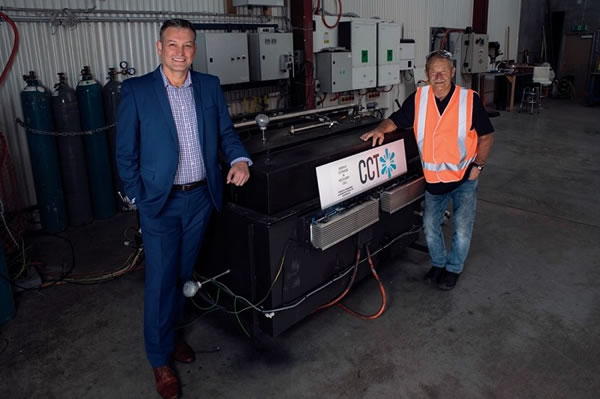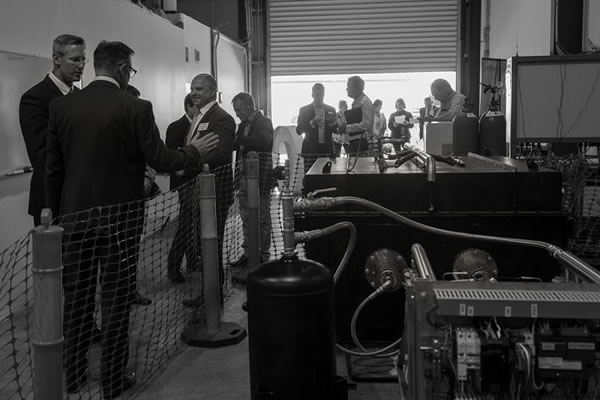CCT launches the world's first available thermal battery
In the early days, South Australia has put the world's largest lithium battery pack into operation. But a local startup says it can provide better solutions. CCT Technologies claims that it has created the world's first usable thermal battery with an expected life of at least 20 years. Compared with lithium-ion batteries, it can store six times the power in the same volume, but the price is only 60 ~ 80% of the former.

(Photo from: CCT, from: New Atlas)
CCT Energy Storage pointed out that the TED thermal energy storage device adopts a modular structure and can accept various types of electrical energy storage, such as solar energy, wind energy, and fossil fuels. Therefore, even in places far away from the power grid, CCT Technologies' solutions can play a great role.
The TED device stores energy by heating and melting silicon elements in a high-density insulated chamber. When reverse output is required, it can be achieved by a heat engine. A standard TED device can hold 1.2 MW of energy.
Taking all input and output devices into account, it can be easily installed in a 20-foot (6 m) container. Compared with lead-acid batteries, TED can achieve 12 times the energy storage. Even compared with lithium batteries, its advantages are still obvious.
TED supports flexible deployment and supports unlimited expansion and instant access from 5kW to hundreds of megawatts. As a set of easy-to-control energy storage solutions, you only need to connect more modules to the system.
In the event of an unexpected power outage, a TED device can continue to be active for approximately 48 hours. Even better, the system supports simultaneous charging and discharging, and there are only three moving parts in each device, and the maintenance is almost negligible.
Over time, the performance of lithium batteries (and other common solutions) will gradually decrease. After about 5000 cycles, its capacity will be reduced to about 80%.
The good news is that even though the TED device has been tested 3,000 times on the platform, there is no obvious decline. The company's chief executive officer Serge Bondarenko said on the phone that the official expects the device to last for more than 20 years.

(Photo from: CCT Energy Storage)
Melted silicon does not degrade like lithium, which is a chemical process, but TED only heats the phase change. In fact, after each cycle, silicon can store heat even better.
Even if the equipment is retired, the TED module is 100% recyclable and will not cause any environmental problems like lithium batteries. In addition, in large-scale applications, it is more cost-competitive.
Bondarenko estimates that his own plan is only 60 to 80% of Tesla Powerpacks based on lithium-ion battery solutions. After being installed on the anti-shock platform, the TED module can be easily adapted to the earthquake-prone environment.
Even if serious problems are encountered, the system can be shut down in time and begin to cool down, and then when it is ready, it can be safely activated again. (It should be noted that the melting point of silicon exceeds 1400 ° C / 2550 ° F)
At present, CCT has reached preliminary intentions with a number of companies, including providing TED equipment to Stillmark Telecommunications, and has signed a reciprocal manufacturing agreement with MIBA Group.
The latter will have exclusive rights to manufacture and sell the technical device in Denmark, Sweden, and the Netherlands, and will subsequently cover more markets in Europe.
Led Spot Light,Downlight Spot Light,Spot Light Aluminum,Store Spot Light
JIANGMEN MICHEN LIGHTING CO.,LTD , https://www.jmmission.com